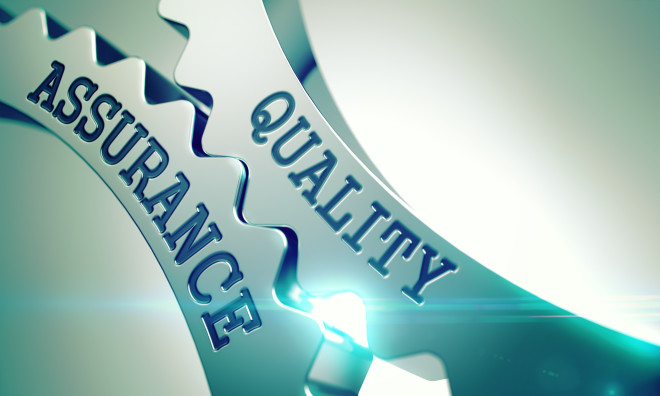
- AI improves quality control by enhancing defect detection, predictive maintenance, and automated corrections in production.
- Predictive maintenance using AI helps prevent equipment failure, particularly in high-risk industries like aerospace and automotive.
- Ensuring quality in AI systems requires new testing approaches that account for AI’s unpredictability and reliance on data patterns.
Artificial intelligence is reshaping quality control and assurance by making inspection processes faster, more accurate, and scalable. Traditional inspection methods, while reliable, often fall short in speed and precision. AI addresses these limitations by detecting defects like cracks or size variances that might elude even skilled human inspectors. Through analyzing large volumes of production data and imagery, AI enhances consistency, reduces waste, and minimizes manual involvement. This makes AI a powerful tool for businesses seeking to maintain high-quality standards in a fast-paced production environment.
A particularly impactful application of AI is in predictive maintenance, especially in industries where failure is costly or dangerous. AI systems can monitor sensor data—such as pressure, vibration, or temperature—and spot early signs of equipment wear or degradation. A patented system described by the author uses a “jury” of AI classifiers to assess maintenance needs, alert teams to issues, and enable timely interventions. Though not yet widespread in real-time systems like aircraft, the concept points to a shift from fixed maintenance schedules to condition-based servicing, improving efficiency and safety.
However, quality assurance for AI systems themselves introduces new challenges. Unlike traditional software, AI doesn’t follow predictable rules but learns from complex data patterns. This makes its behavior harder to interpret and verify. Conventional QA techniques aren’t sufficient; AI requires a unique testing framework that evaluates data quality, performance consistency, adaptability, and robustness against unexpected inputs or attempts to manipulate it. High-stakes applications demand even more rigorous security and reliability checks to build trust and ensure safe operation.
Looking ahead, AI will not only find defects—it will help prevent them by analyzing real-time production data and correcting anomalies before they cause problems. AI can also automate root cause analysis when defects do occur, reducing downtime and improving consistency. While AI hasn’t yet replaced every aspect of human oversight, its evolving capabilities signal a major transformation in managing quality assurance. By combining smarter defect detection, predictive insights, and adaptive testing, AI can drive greater efficiency, product quality, and customer confidence across industries.


Leave a Reply
You must be logged in to post a comment.